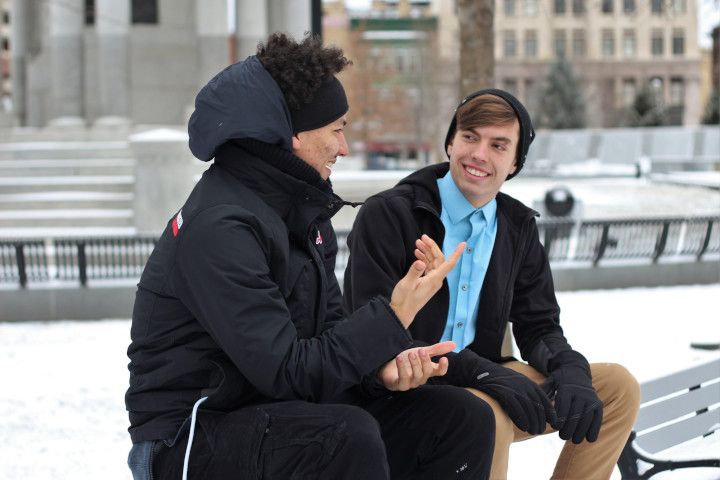The art of conversation through smiles, signs, and Google Translate
Written by Atinuke Ajayi, edited by Scott Green, photo by Unsplash
People often miss out on great experiences, memories, and friendships because of language and cultural differences. The truth, however, is that language has never truly been a lasting barrier to genuine human interaction.
This is not to encourage unpreparedness. When moving to a new country, especially one whose language is different from yours, it is important to at least learn some common phrases and words necessary to get by. Still, there is only so far words like hello, good morning, and goodbye can take you. What happens when you need more?
Luckily, much of the younger generation in Bulgaria speak another European language, with the majority speaking English. So, if you need something at the bank, mall, or on-campus, chances are you will find an English speaker to help you out.
On the flip side, the woman at the market stall, your local grocer and most of the older generation will most likely only speak Bulgarian and maybe some Russian. How then do you communicate when you do not understand?
Francis, now a final year student at Varna University of management recalls his first interaction with a non-English speaking Bulgarian. “I had just arrived in Sofia, gone through immigration, and needed to direct the taxi to my hostel. All pleasantries were concluded, and I was soon stuck. The driver sensing my confusion smiled warmly, opened up his translator app, and passed me his phone. Soon were chatting away like old friends, I remember this interaction fondly.”
Tolu, a medical student was at the ATM waiting for his turn, when the middle-aged lady who had just used the machine approached him. “She held up her card, pointed to the machine, and waved it in the universal sign for no. Na raboti she said looking into my eyes. Somehow, I understood immediately, that the machine is faulty. Blagodarim vi I said but she was not done. C’mon, she signaled and led me to the next ATM. It was surreal.” He concluded.
In my experience, I find it is best to smile, use gestures such as pointing or signing, and only, when necessary, use a translator app. Bulgarians will go out of their way to get their message across and most times a younger person or English-speaking adult will jump in to assist.
It is important to go back to the basics when our words fail us, and of course, we can always rely on good old Google Translate to help us out.
